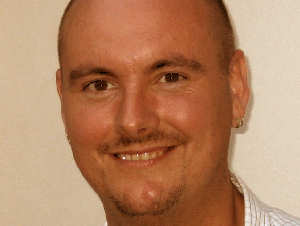God is the storyteller of our lives
 Regular Network Norwich and Norfolk columnist James Knight looks at God as the narrator and storyteller of our lives.
Regular Network Norwich and Norfolk columnist James Knight looks at God as the narrator and storyteller of our lives.
In the recent series on miracles we spent quite a bit of time looking at God the engineer (or mathematician), examining the nuts and bolts of creation and how miracles may be part of that physical creation.
One of the most important things we can realise as Christians is that we can see God as both a mathematician but also as a narrator in our personal lives. Given that the Bible consists of story after story conveyed to present eternal truths in parable-like forms that would resonate at an intellectual and emotional level throughout every age, it seems natural to view God’s primary method of engaging in our lives not just as a mathematician where mathematics, physics and cosmology give us a crash course in understanding nature, but as ‘narrational’, where nature’s utility and her whole quintessence – from beauty through to tragedy, and from the impersonal through to the our deepest hopes and longings – are told in stories that come alive through our free choices and creative intellect.
Thus the cosmic sentience of the Divine is easier to engage with as a storyteller than an engineer; as the former He is much more akin to a Heavenly father who holds us in the sanctity of His arms and tells us our own story in the “Once upon a time…” manner; as the latter He is much more akin to the engineering genius of the Heavenly uncle whose designs and constructs one only gets to grips with by small samplings of everything He has going on in His workshop. As an engineer and architect His ways will always be much further beyond our comprehension than as a Heavenly Father telling stories, for we know that He only tells us our own story through Christ active in our lives. He works as co-collaborator with any who want to capture the true potential of the self in nature’s utility.
Given the foregoing, direct evidence of God at every moment would change the entire nature of our existence and would dismantle the potential for two of the most precious things that He instilled into creation – the relationship and the journey. To have Him any other way would be to have the destination before the journey, and unless it were Heaven, at some point the human nature we presently know would be inured of it and we would soon find ourselves copying the Israelites - partying and making gods of other things, only this time it would be right before His very eyes with our noticing it to the point of virtual dehumanisation.
The kind of theism that God is interested in is clearly very different – He is interested in those progressive searches through which He can be at work behind the scenes, helping us along the way but by affording us the autonomy to retain the freedom to be ourselves. And evidently, the kind of theism which would be a compelled assent to a journey on which we worked out our own destiny with Christ must, I presume, be so much more stupendous because of it.

I expect to find God in the place He meant for us to find Him, in Jesus. Jesus is active and will give revelation to any who wish to make Him Lord; but if you want to find God, you must meet Him on His terms, it’ll be to your benefit. Looking for God in your daily routines or in the other areas of life such as physics is a bit like looking for Charles Dickens in Great Expectations or The Old Curiosity Shop or Our Mutual Friend or A Christmas Carol – of course He is present, even in those who would exile themselves from Him (they too are made in God’s image like the rest of us) - God’s creativity is there in nature, but He is not present in the same way that Miss Havisham or Daniel Quilp or John Harmon or Ebenezer Scrooge are all present in the aforementioned stories, nor is He running through them like water down a stream.
To get to know the man behind the stories you would need to meet him in person, and that is what God invites us to do with Christ Jesus, through which revelation occurs, and if it happens it will be unmistakable – you will know it is Him.
Jesus is the Creator of the universe, but since the ascension He is not related to the world in the same way that gravity is related to the planets or the electromagnetic spectrum is related to gamma rays and radio frequencies; He is related to nature as Dickens is related to his novels. Each of our own individual stories are, in a sense, related to the whole of nature, just as each character in, say, Oliver Twist (Oliver, Fagin, Nancy, Bill Sikes, Rose Maylie, Mr. Brownlow, Mr. Bumble, and so on) is related to the primacy of the story, and to the mind of Dickens himself.
Thus, demands to see God in nature as some object like a tree, or a snowfall, or a constellation as Ptolemy described them in his ‘Almagest’, or some mathematical formula, or even a person, are as insensible as expecting (or hoping) to see the person of Dickens in one of his stories. God is the Creator, and just as Dickens is the mind behind the characters, so too is God the mind behind all the characters in creation – so in order to know Him one must meet Him on His terms, and His terms are Christ Jesus, and love and grace, and free salvation on the cross. God didn’t want to remain a mystery, that is why He became a man to die for every single human being, and it is through that death, resurrection, and through His word that one will get to know Him.
God is not a static mineral which we can all test for solidity, or some flying magician that we can pull from the sky and check His drag-coefficient - He is a personality, and the Bible is a book about having a relationship with Him. We wouldn’t for example pull a young lady out of a crowd at university and engage her in on the spot tests to see if she is capable of loving a man and concluding that it is not in her based on a few charmless salutations.
Her capabilities for love aren't based on testing and probing with a few witty gambits; they are based on interacting in ways that the expression of love is realised through growth and gradual appreciation – coming to know the personal qualities of a person and how the physical chemistry causes the kind complementarity from which love builds its foundations.
It is much the same with God. He will answer your prayers for revelation, but if you don't seem very sure of who He is, what He's done for you, or what having a relationship with Him even entails, there is a need to develop this understanding.
To conclude this message, if we’re looking for the thinking behind the cosmic story, one idea I like very much, and tend to agree with, is Leibniz’s ‘The best of all possible worlds’ idea, in which he argues that a perfect, omnipotent, omniscient, all-loving and rational God must choose the best of all possible worlds for His creation, and that God has done just that with the complexity of the human personality and with the external world we see around us.
Although we have a world in which lots of bad things accompany lots of good things, this world does give the appearance of being the most interesting and enriching that God could have created. Given the rich tapestry of diversity, the dialectic between the very big and the very small and between the very simple and the very complex, the vast nexus of possibility and potentiality, and the stupendous myriad of emotional variety and exciting diversity found in love, grace, kindness, friendship, familial bonds, charity, togetherness, fortitude and the various multiplicity of human endeavour available to human minds - I tend towards the view that God has created the most fascinating of all possible worlds, and the story is only likely to be lived fully by our engaging in it. And that is exactly what Christ invites us to do – it is ours to accept.
The views carried here are those of the author, not of Network Norwich and Norfolk, and are intended to stimulate constructive debate between website users. We welcome your thoughts and comments, posted below, upon the ideas expressed here. You can also contact the author direct at james.knight@norfolk.gov.uk
James is a Norwich local government officer, author and Proclaimers church member in Norwich. You can access his current collections of columns here
Meanwhile, if you want to find out more about Christianity, visit: www.rejesus.co.uk